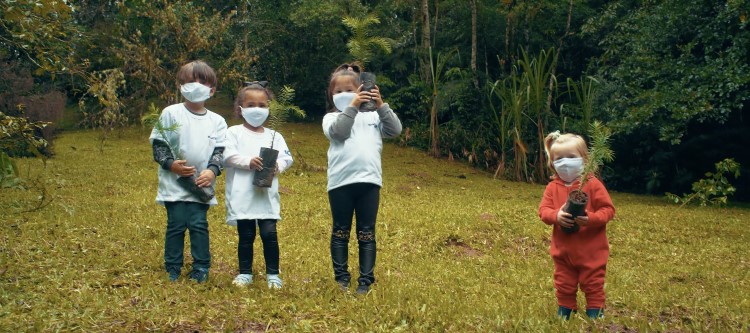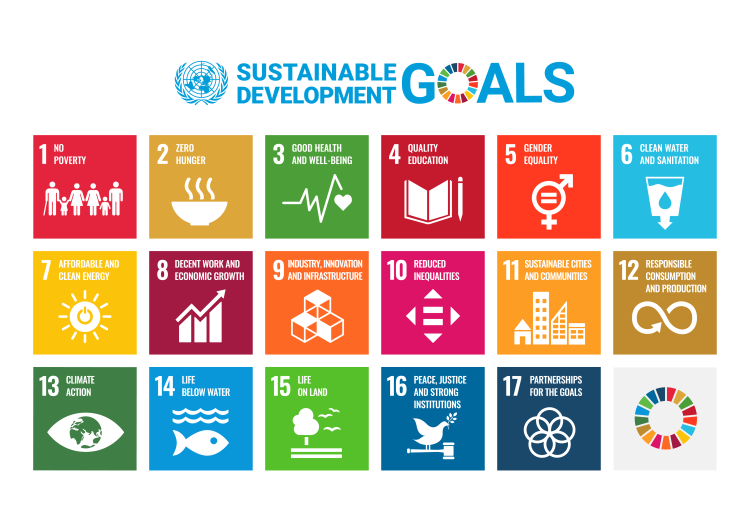
On the evening of September 25, 2015, representatives of the United Nations’ 193 member states broke into fervent applause during a special summit hosted by the organization. Lars Løkke Rasmussen, prime minister of Denmark, had just announced that 17 sustainable development goals (SDGs) had been "so decided," capped by a vigorous strike of the gavel, which was immediately followed by a standing ovation. A video display of icons representing each of the goals lit up the New York City street outside the U.N. headquarters, with a crowd of supporters cheering on as well.
The unanimous vote by U.N. member states to commit to these goals is now a footnote in history. Before COVID-19, substantial progress had been made with some of the 17 SDGs, while others were more off-track. But the global pandemic has impacted the SDGs in ways no one could have foretold and yet, in many ways, highlighted their importance more than ever. As our entire planet grapples with an unprecedented crisis, the U.N. SDGs put a renewed spotlight on issues like world hunger, climate change, social inequities and many other urgent global concerns.
The 17 SDGs are actually part of an overarching initiative by the U.N., known as the 2030 Agenda for Sustainable Development, framed as a shared blueprint for peace and prosperity for people and the planet, now and into the future.
"The 17 Sustainable Development Goals are our shared vision of humanity and a social contract between the world's leaders and the people," said former U.N. Secretary-General Ban Ki-moon. "They are a to-do list for people and planet, and a blueprint for success."
If you've never heard of the 17 U.N. sustainable development goals, now is an ideal time to understand the history, the importance and the future of this landmark effort going forward.
History of the U.N. SDGs

The roots of these sustainable development goals date back to June 1992, when the first Earth Summit was held in Rio de Janeiro, Brazil. More than 178 countries adopted Agenda 21, a comprehensive plan of action to build a global partnership for sustainable development to improve human lives and protect the environment.
Since that first effort, subsequent programs and initiatives built a foundation for the current SDGs:
- The Millennium Summit in September 2000 led to the development of eight Millennium Development Goals (MDGs) to reduce extreme poverty by 2015
- The World Summit on Sustainable Development in South Africa in 2002 reaffirmed the global community's commitments to poverty eradication and the environment with a greater emphasis on multilateral partnerships
- In June 2012, U.N. member states adopted the outcome document "The Future We Want" that included practical measures and mechanisms for implementing sustainable development
- In 2013, the General Assembly set up a 30-member Open Working Group to develop an SDG proposal
- Besides the official launch of the U.N. SDGs, other vital progress was made in 2015, including the adoption of the Paris Agreement on Climate Change
What are the 17 UN SDGs?
According to the U.N., the Sustainable Development Goals were created as "a call for action by all countries – poor, rich and middle-income – to promote prosperity while protecting the planet." The 17 goals were designed to increase awareness that ending poverty must go hand in hand with strategies that build economic growth. The SDGs also address a range of social needs —education, health, social protection, job opportunities — while tackling climate change and environmental protection.

No one can deny that these 17 U.N. goals are ambitious, but Turkey's President Recep Tayyip Erdoğan recapped their wide-ranging importance recently: "We must fulfill our responsibility, not only for ourselves and our countries but also for the future of our children."
Where the UN SDGs and Komatsu CSR themes intersect
In April 2016, Komatsu re-examined the relationship between our business and our corporate social responsibility (CSR) initiatives. That effort also gave us the opportunity to map how our company's CSR activities link to the United Nations' SDGs. Our three major CSR themes are:
- Enhancing quality of life
- Developing people
- Growing with society
Five SDGs have been identified as having a strong relationship with our three CSR themes. By focusing on these specific SDGs, we can contribute to all the SDGs since they are mutually intertwined.
The five SDG goals are
For instance, our “developing people” goal has a strong correlation with SDG 8: decent work and economic growth. Our goal focuses on increasing employment and job creation in regions where we operate by leveraging the human resource and skills development know-how cultivated in our business. It also places a top priority on driving toward a zero-harm and rewarding workplace. Corresponding SDG targets for decent work and economic growth have strong ties to the Komatsu business, such as protecting workers' rights, promoting a zero-harm and secure environment, achieving full and productive employment and decent work, and many other intersecting objectives.
All five SDGs have similarly strong ties to our three CSR themes. A thorough analysis of the SDG and Komatsu CSR connection is featured in our ESG Databook 2020, including a handy table that maps, quantifies and summarizes these intersecting efforts for social good.
What you can do

Now that you have a better understanding of the U.N. sustainable development goals, along with a recognition of how Komatsu’s CSR themes can help to make progress for several vital SDGs, what can you do to help further these ambitious objectives?
If you do business with Komatsu, adhering and committing to the three CSR themes will help expedite the progress of five SDGs by default. There are many opportunities to participate in CSR events through partnerships with our nonprofit organization partners, such as the Urban Ecology Center in Milwaukee, Wisconsin, U.S. We also encourage our employees and suppliers to participate in CSR events, such as our recent 24 Hours of Earth Day global volunteering event.
During that effort, employees around the world engaged in volunteer projects mainly focused on trash pickup and tree/native species plantings. Our employees volunteered more than 15,000 hours, planted more than 14,000 trees and native species, and gathered more than 3,500 bags of trash. You can learn more about this event by watching this video available through our KomatsuCSR YouTube channel.
For more information on our CSR initiatives, visit our website.
For more information on the U.N. SDGs and what you can do to help, visit the UN SDG website, and follow their efforts on Facebook at www.facebook.com/sustdev and Twitter @SustDev. A mobile app is also available.